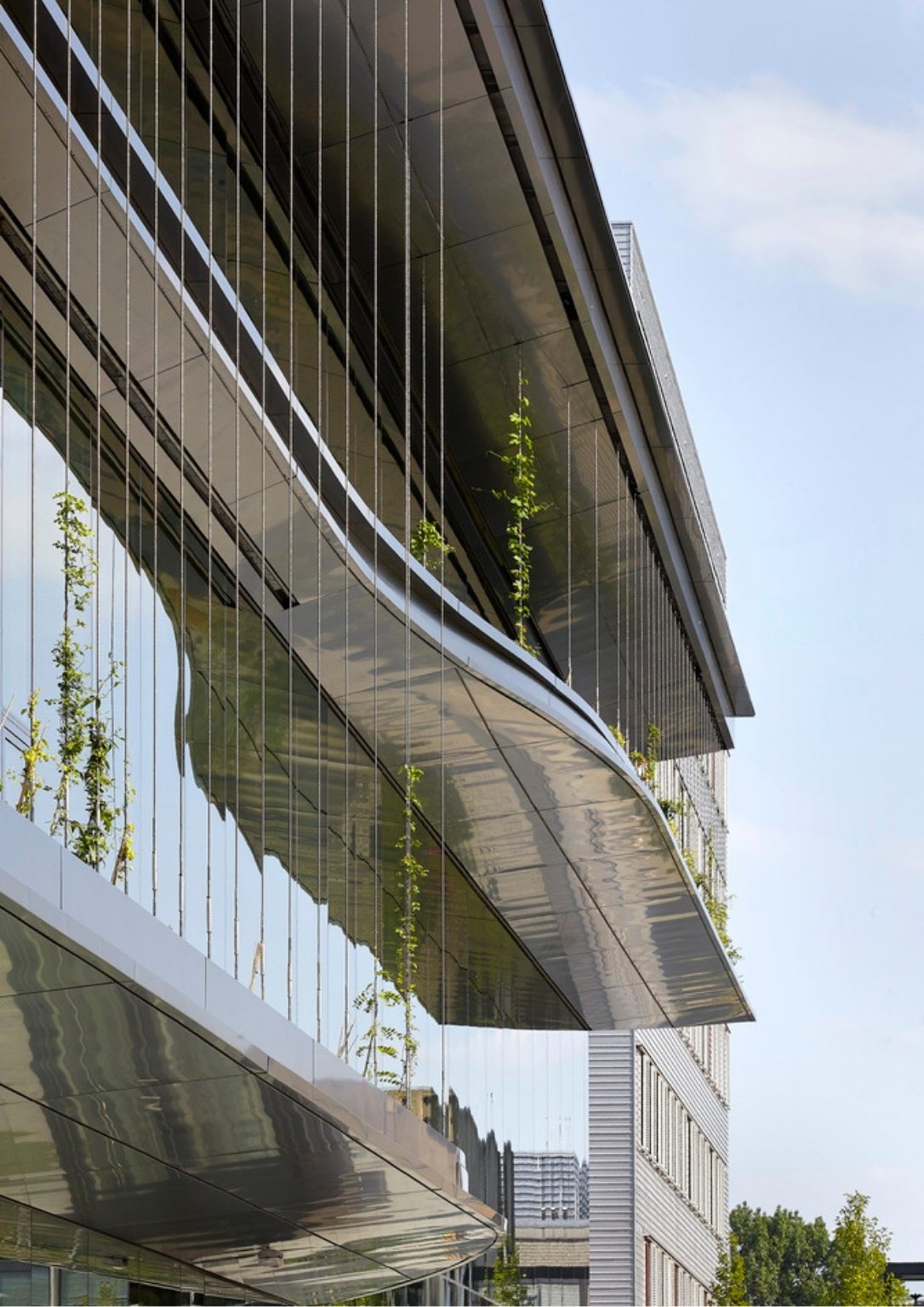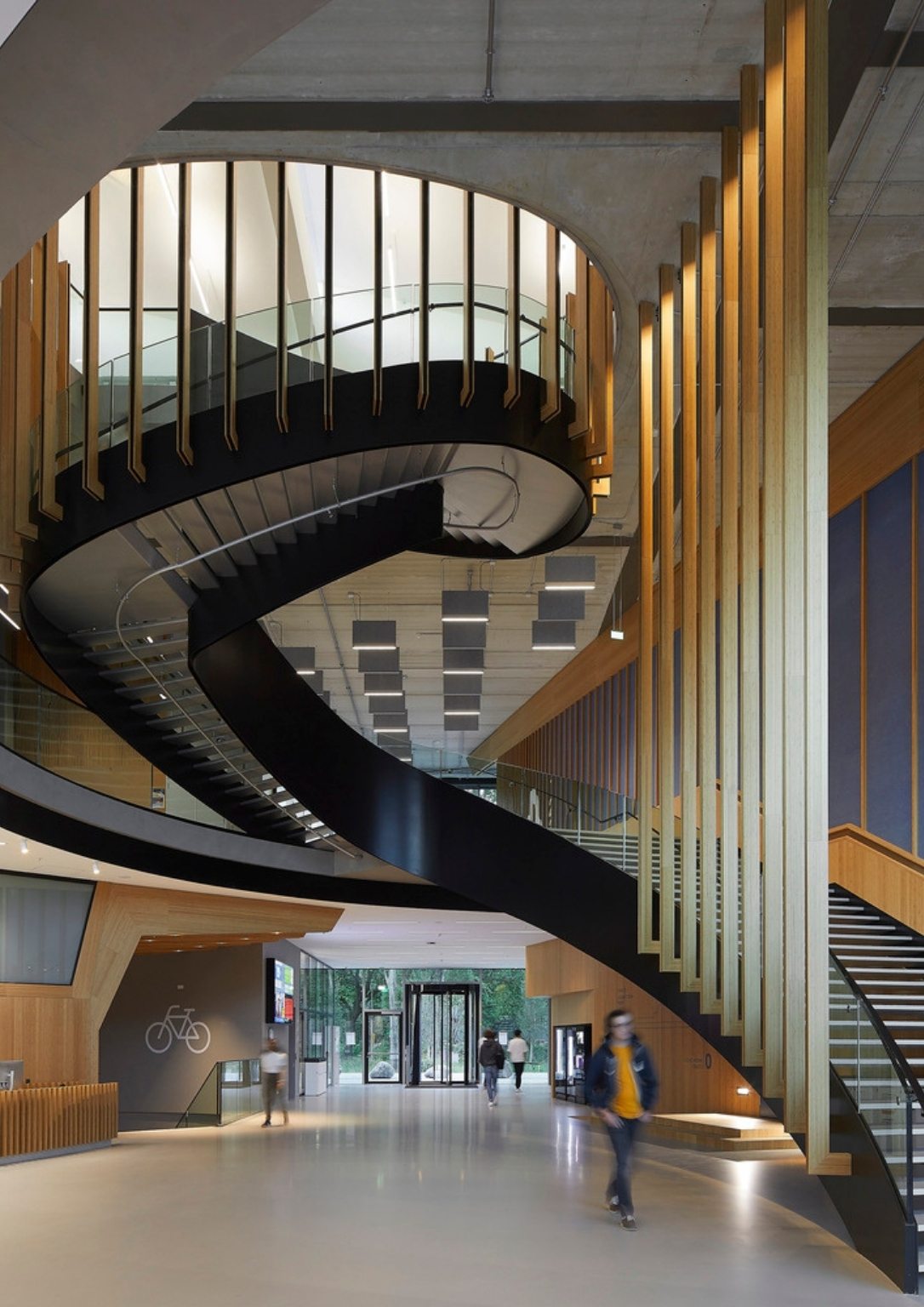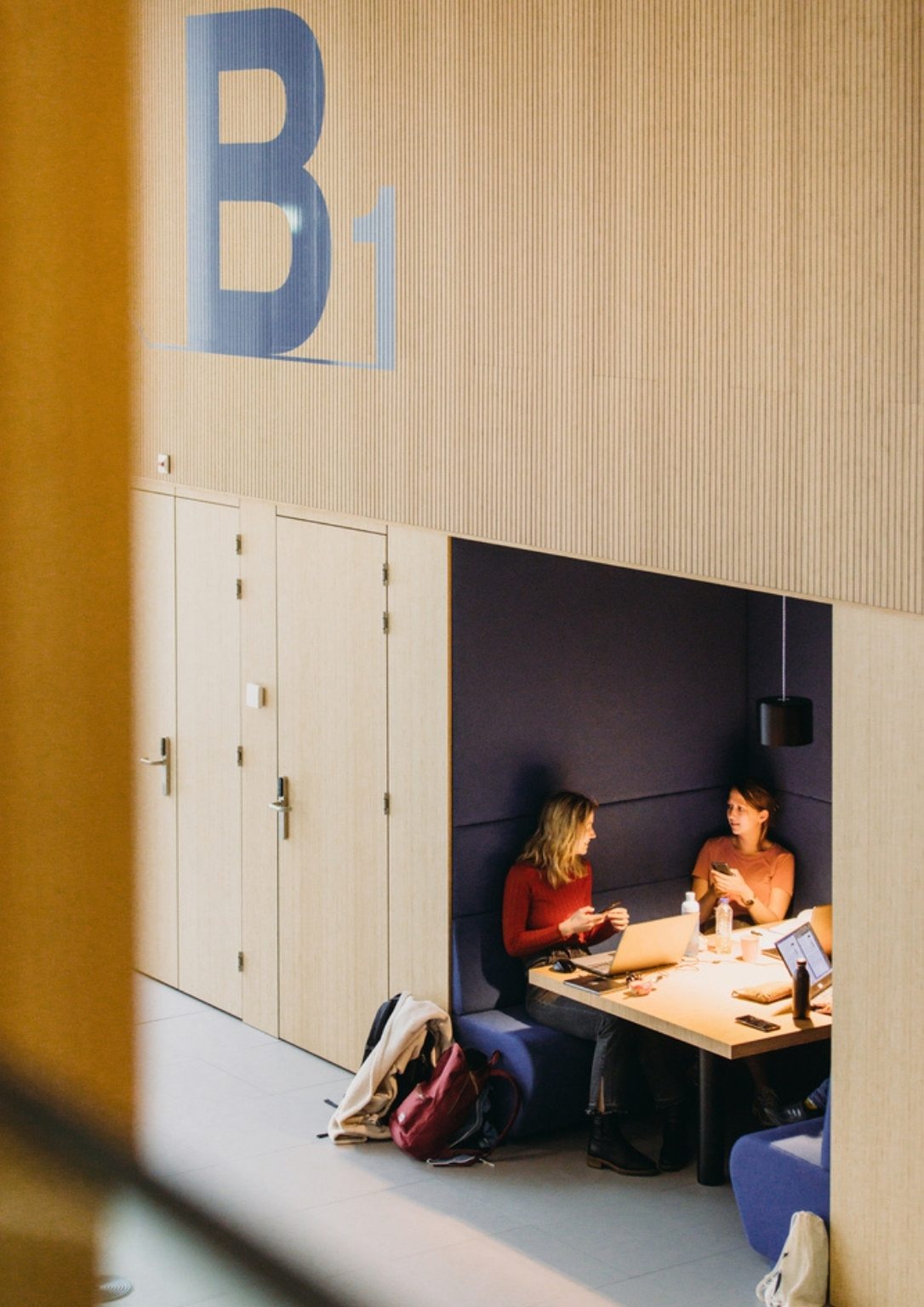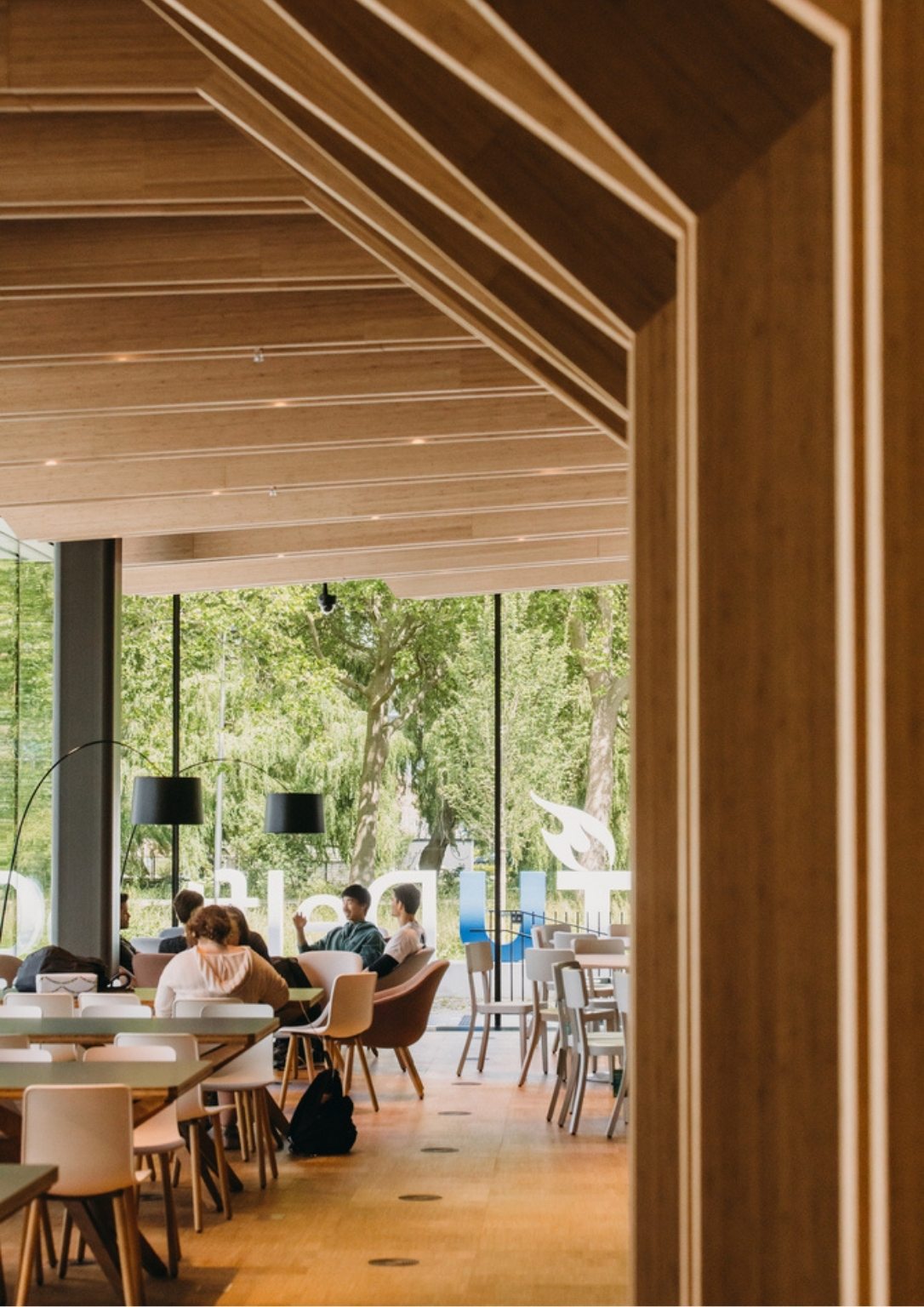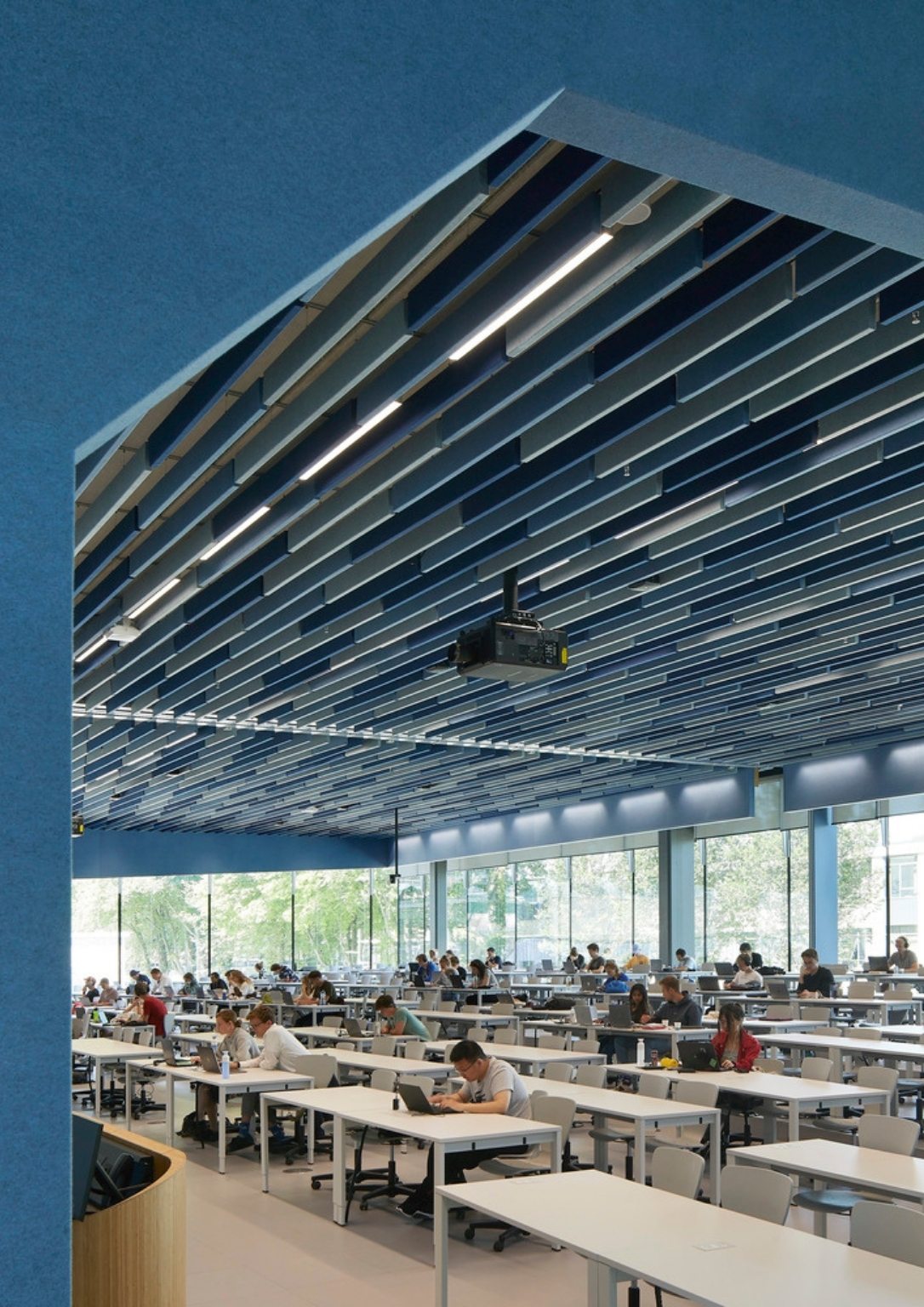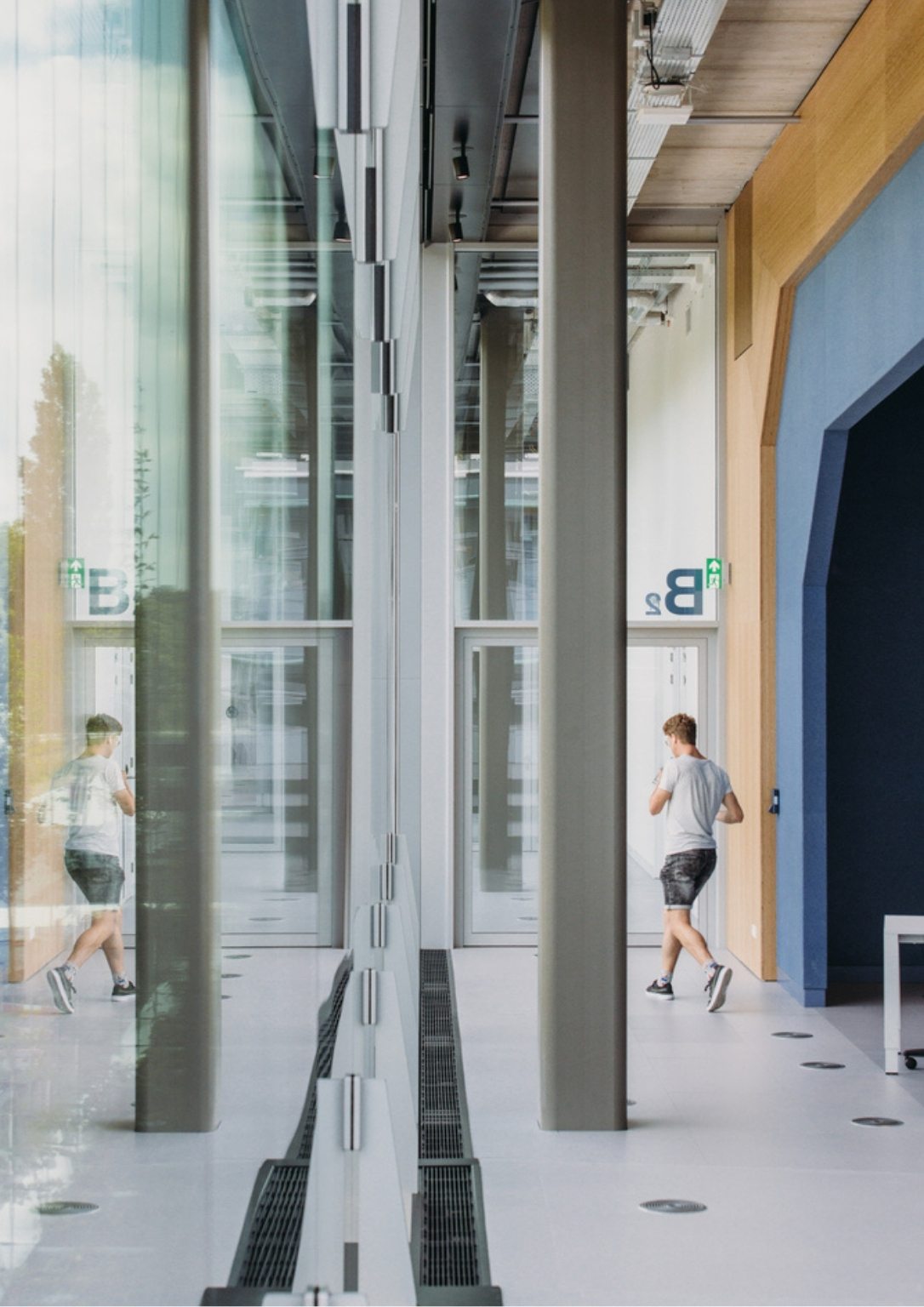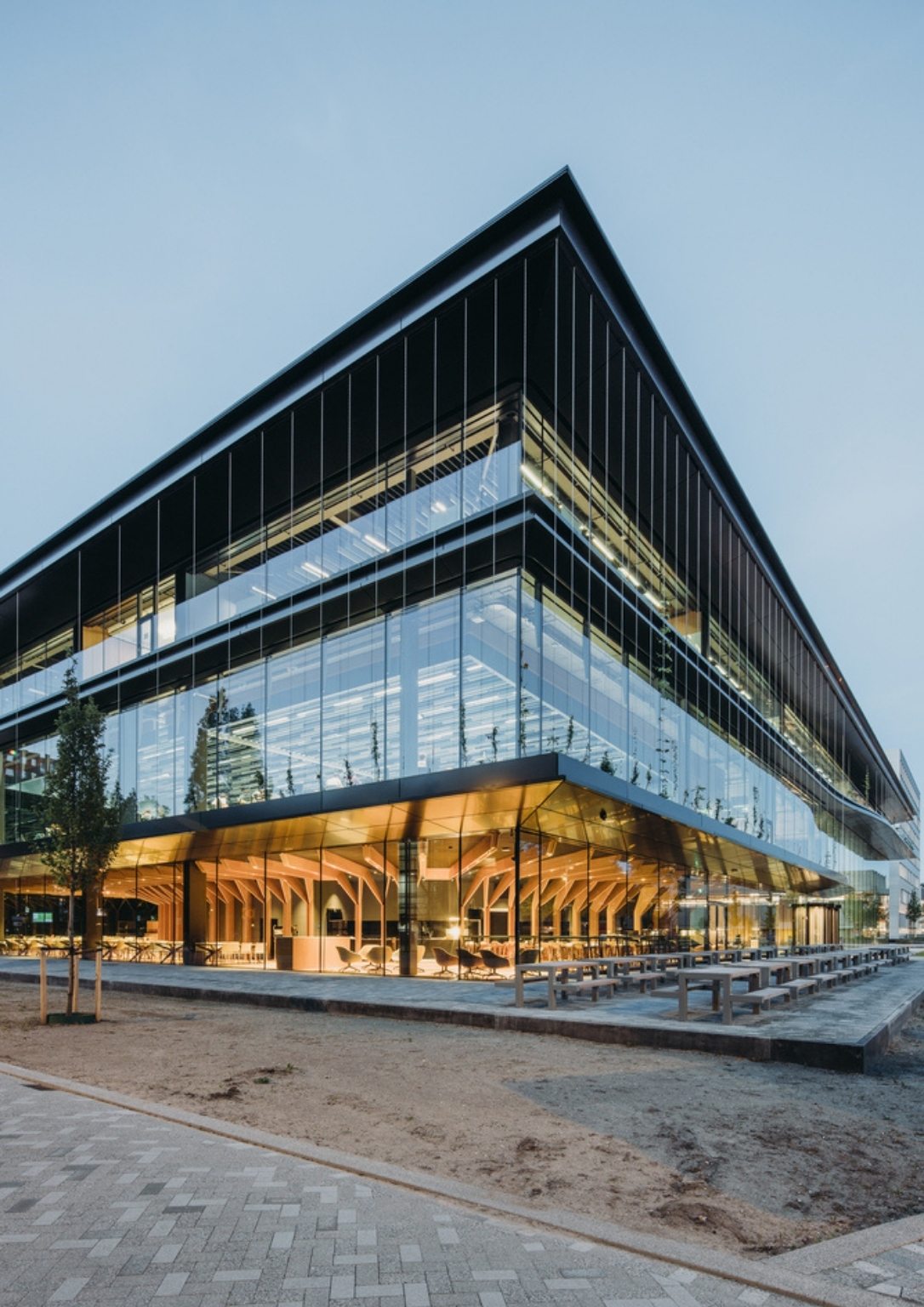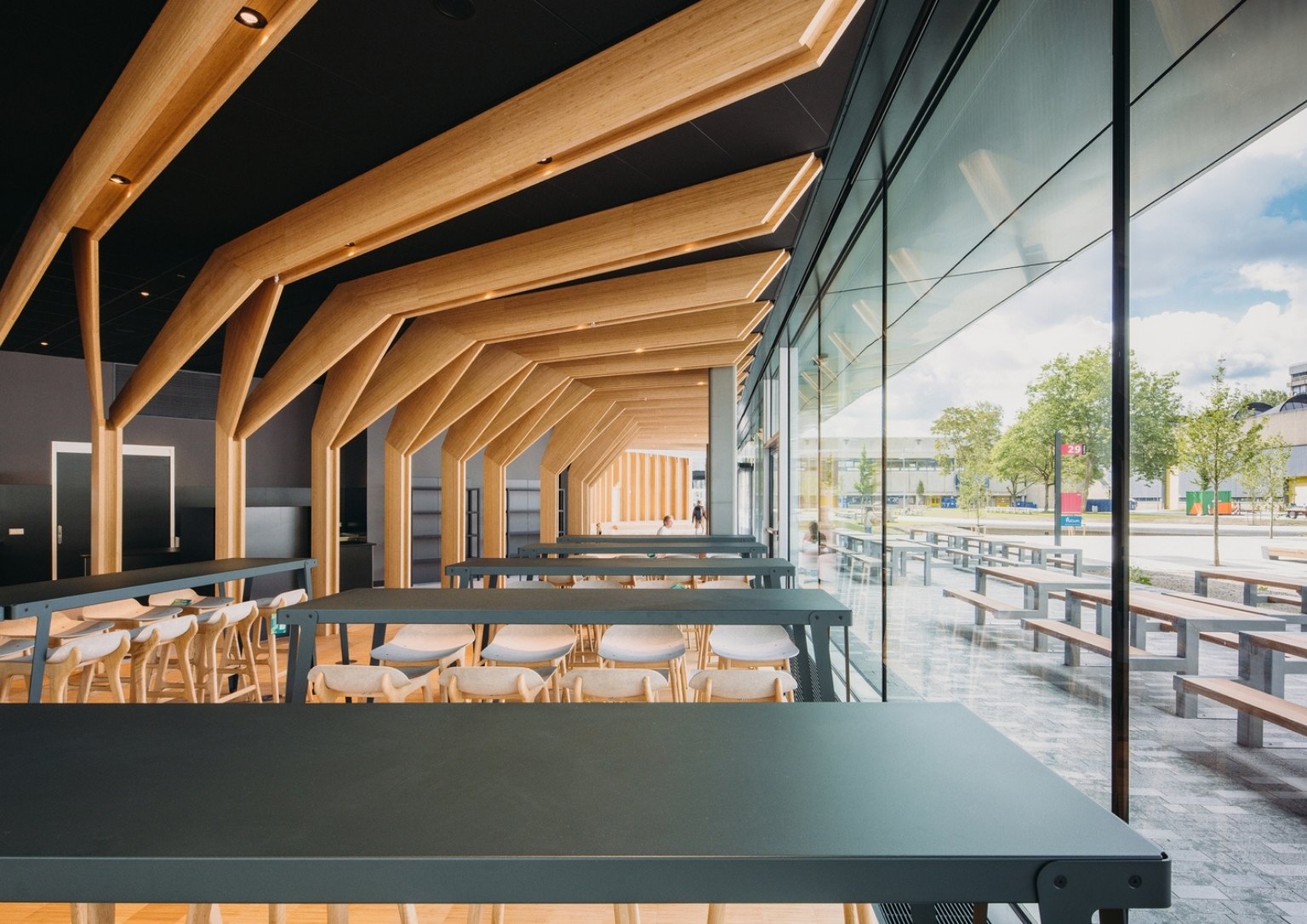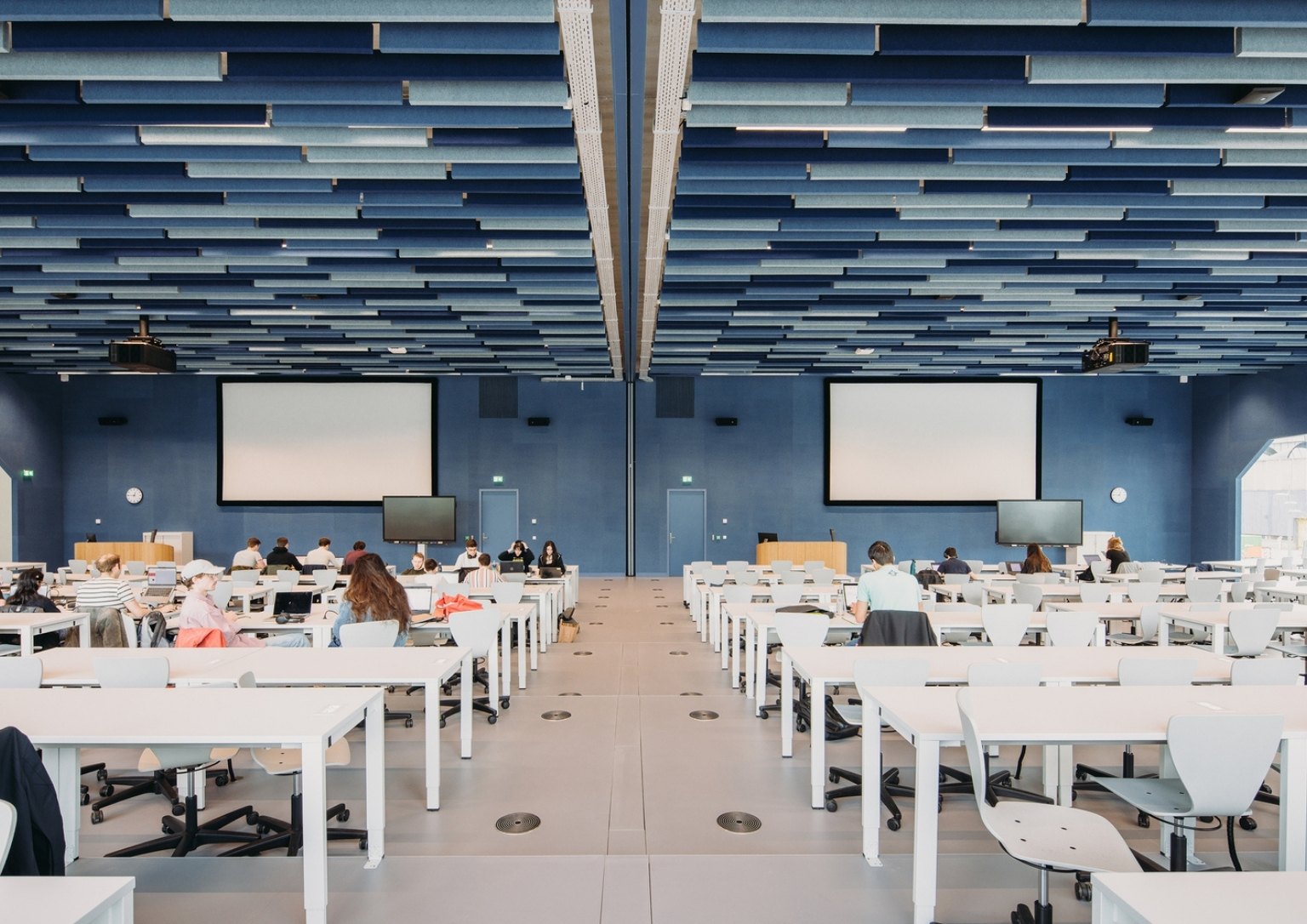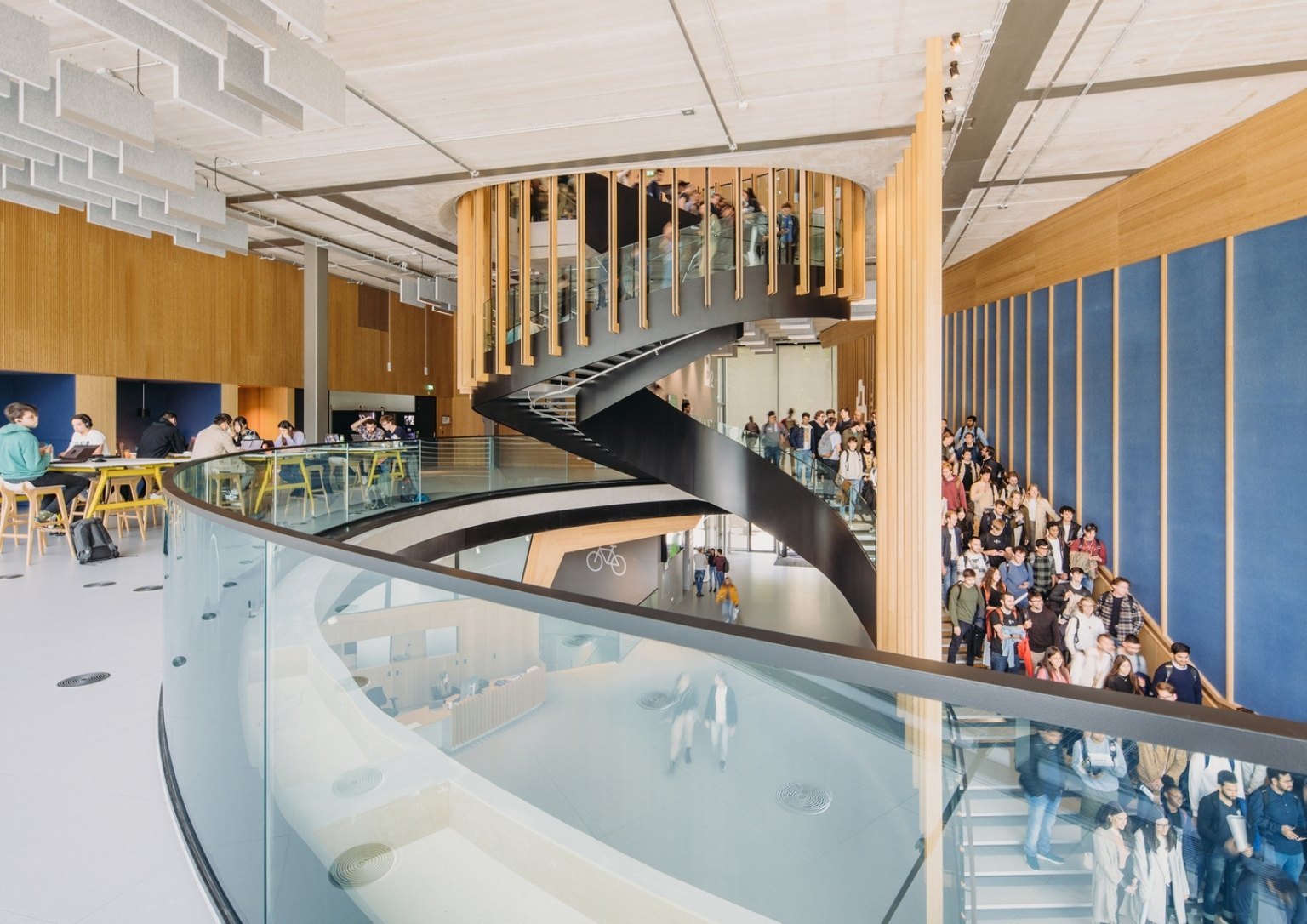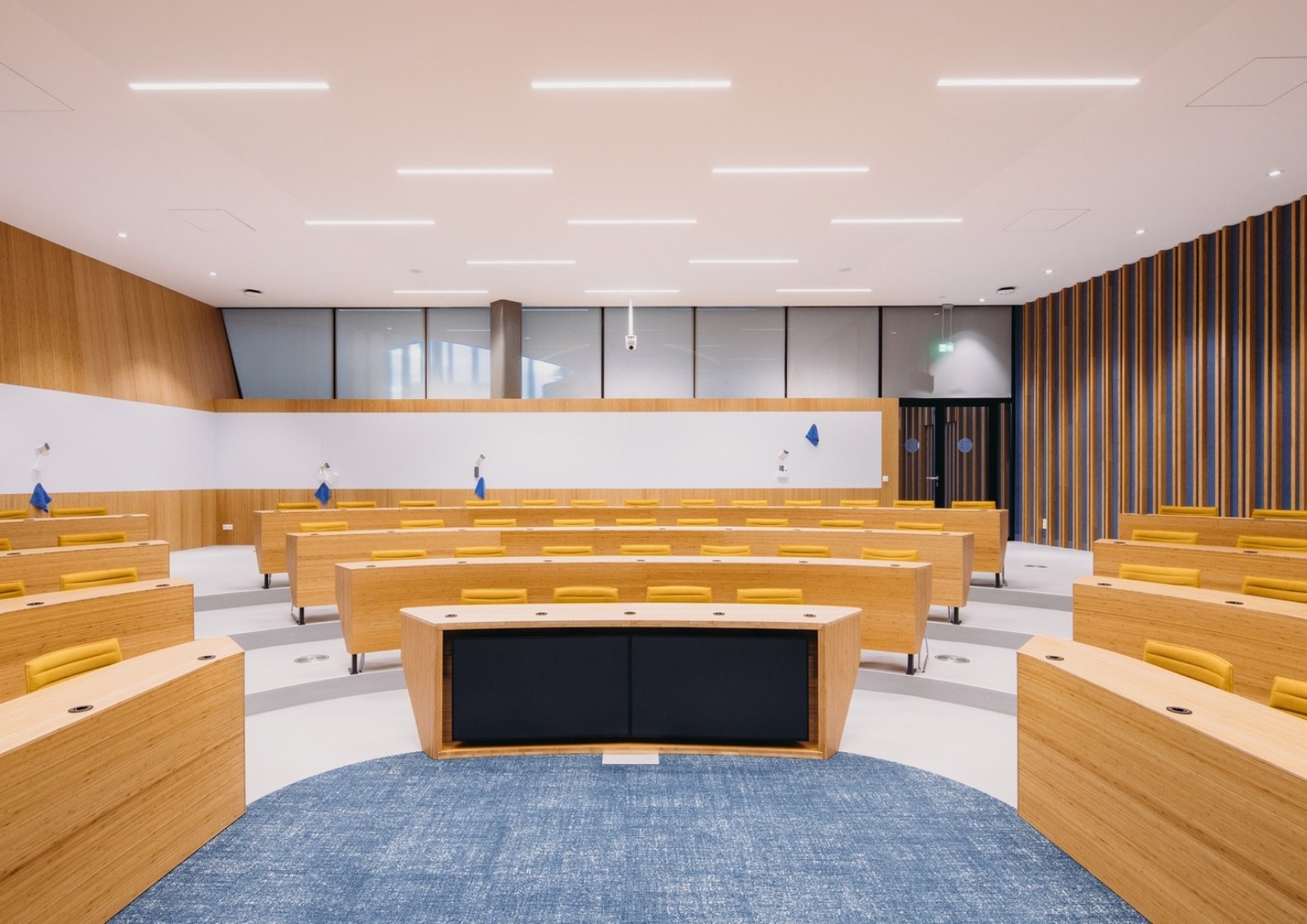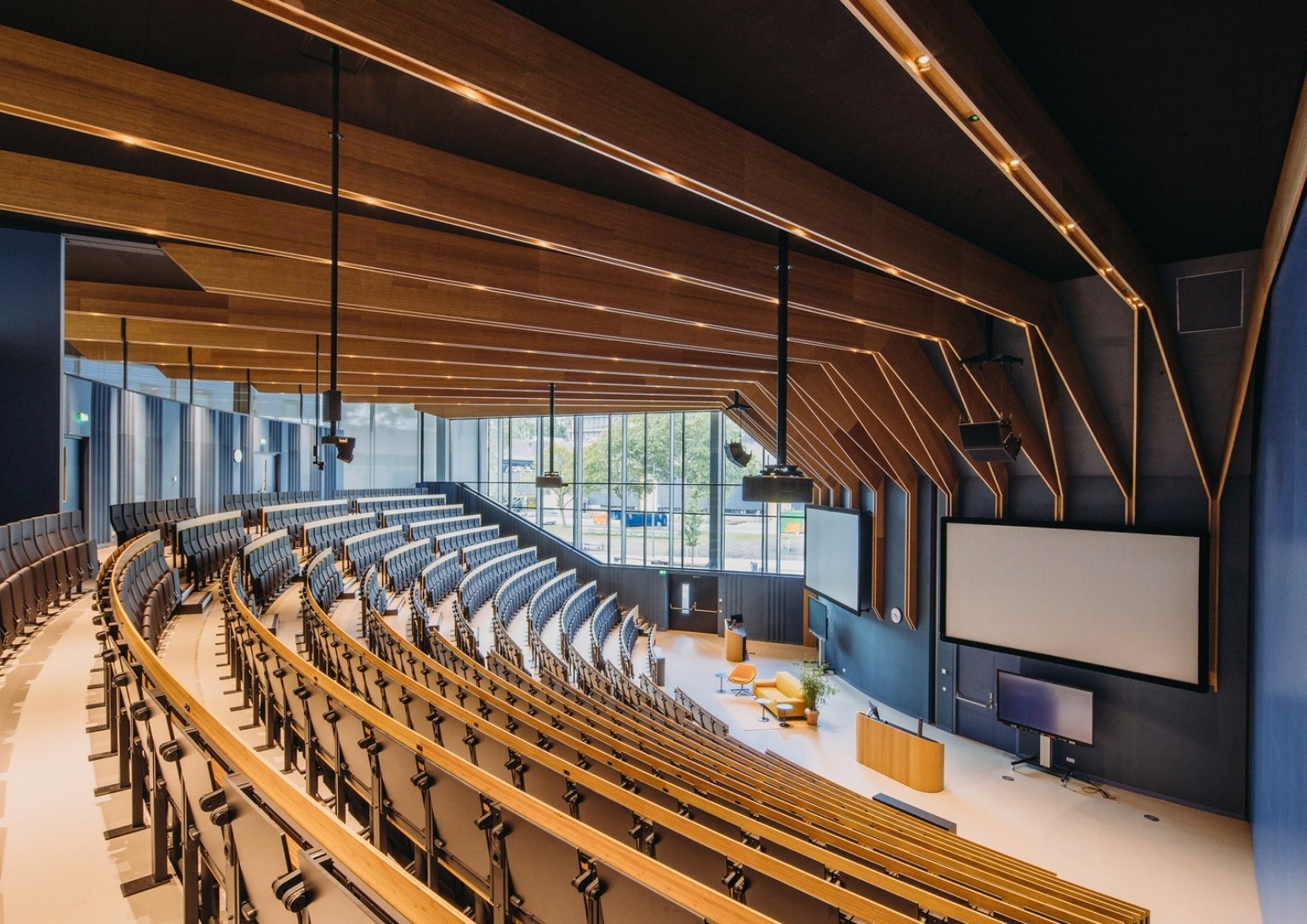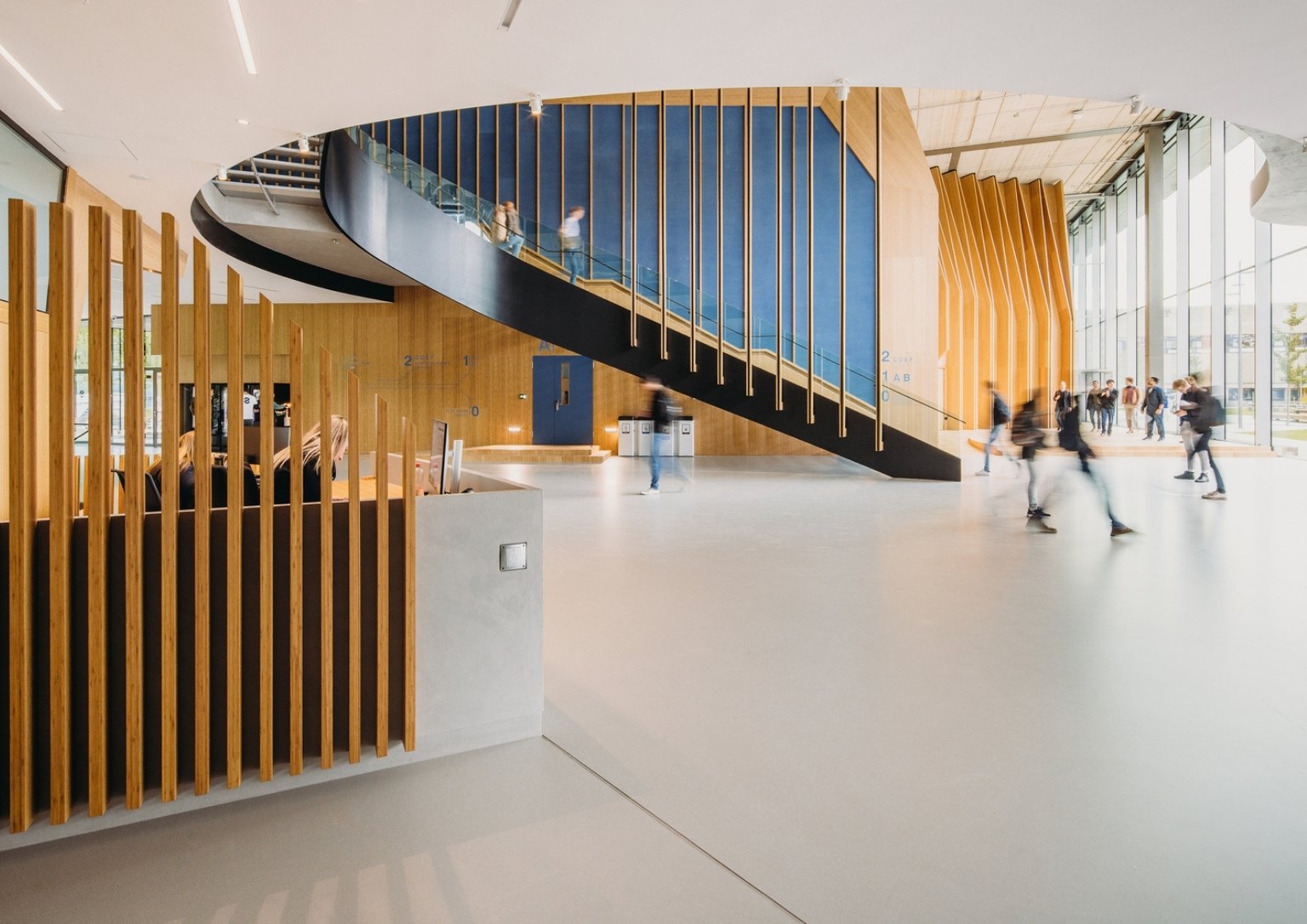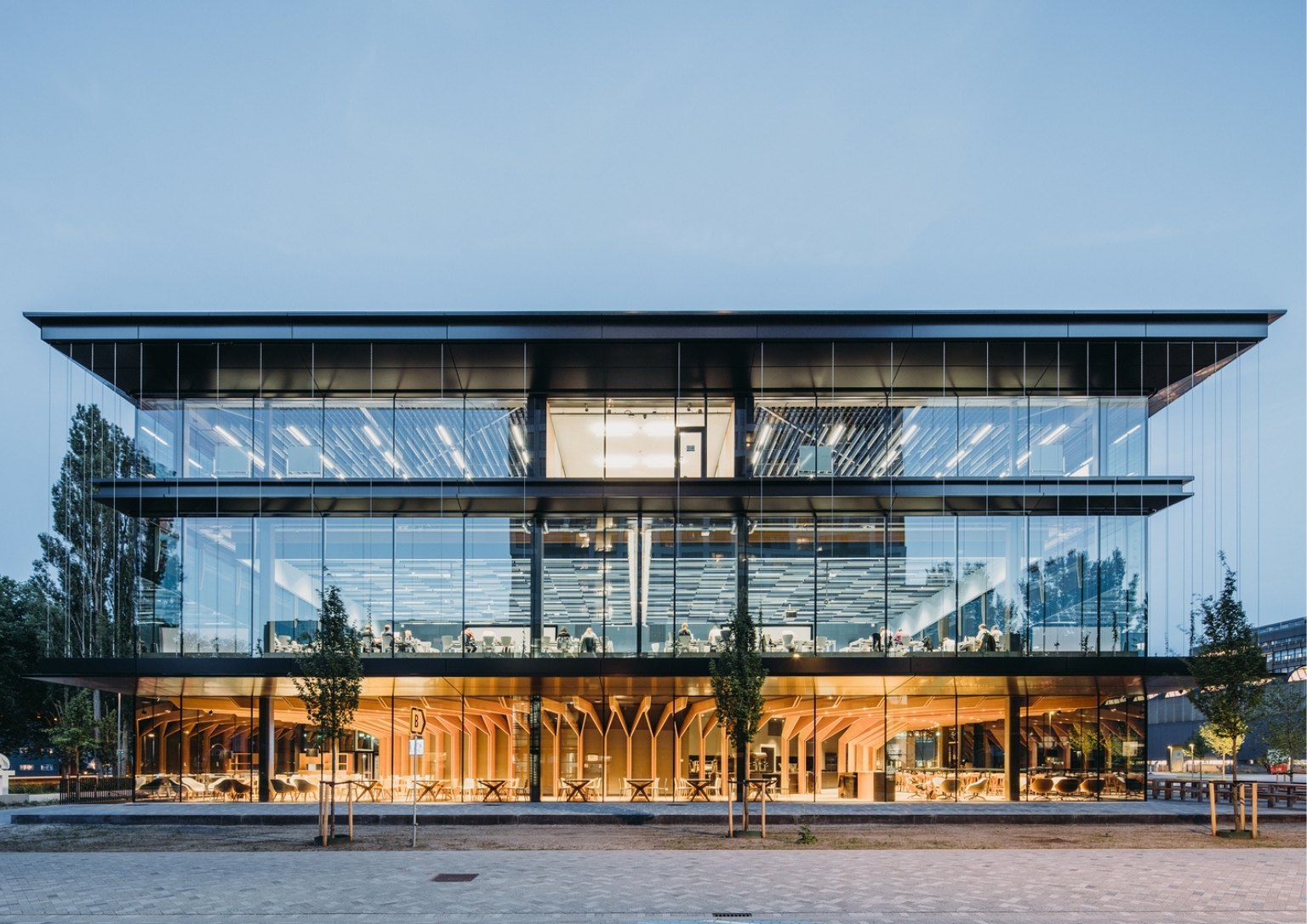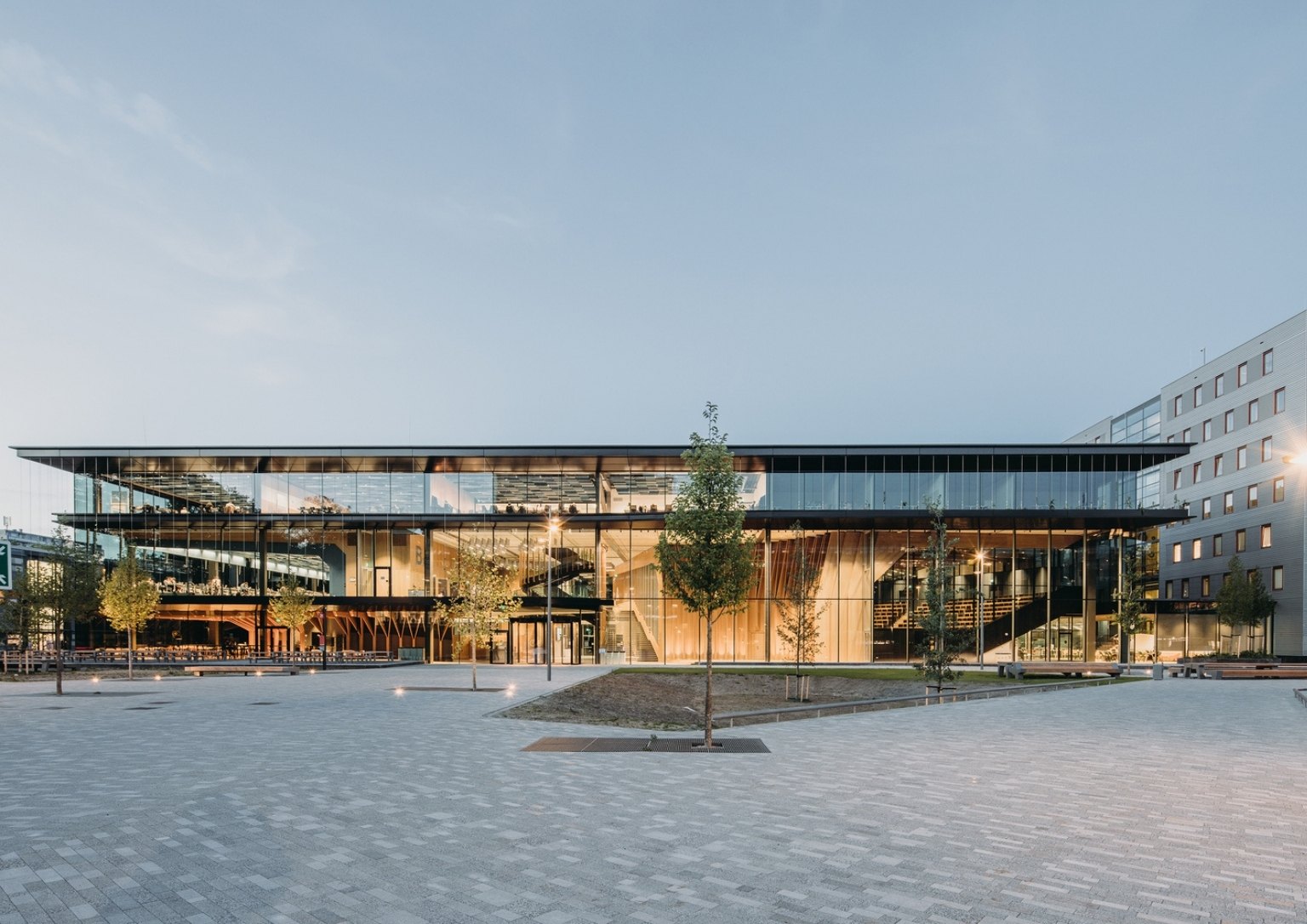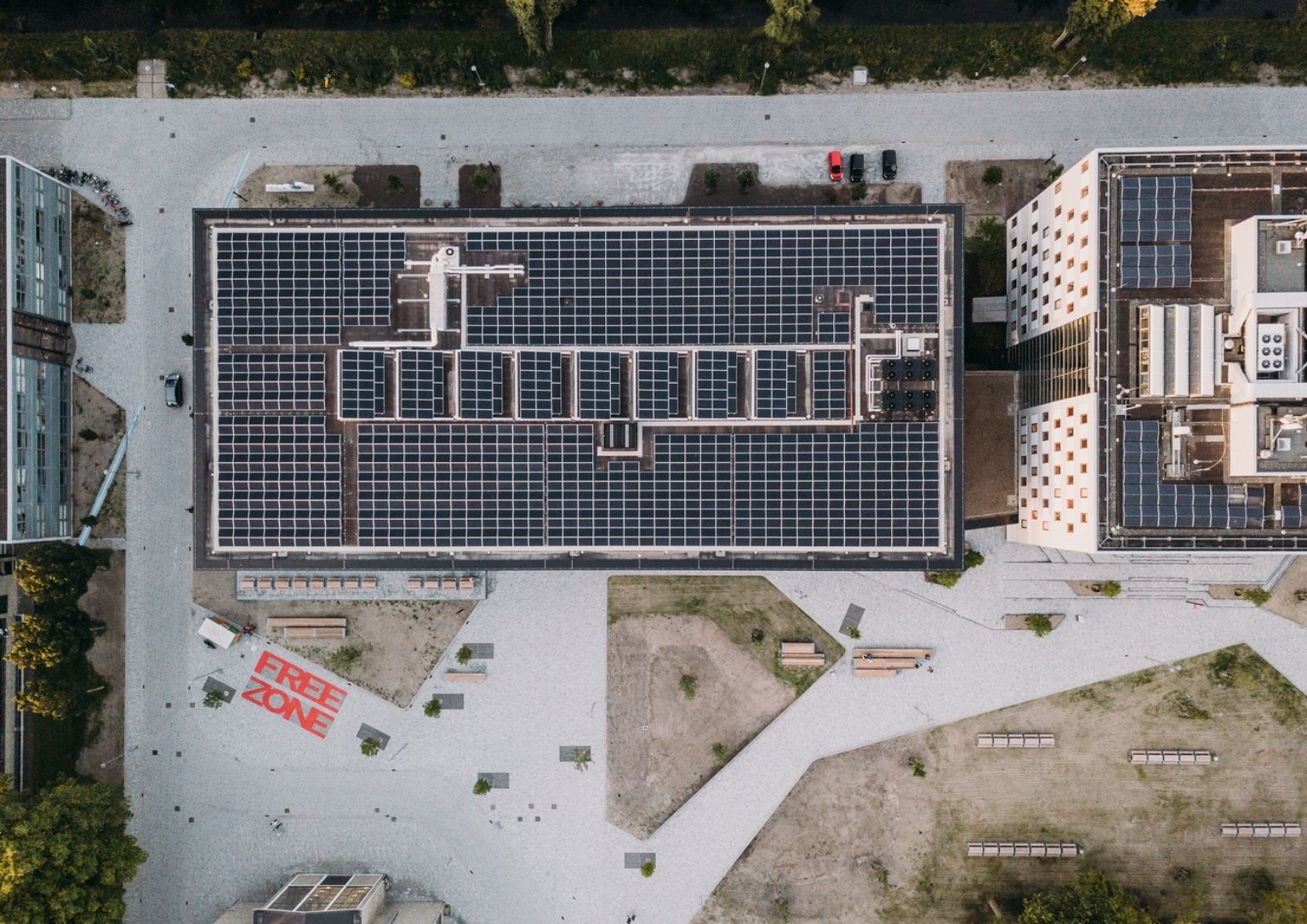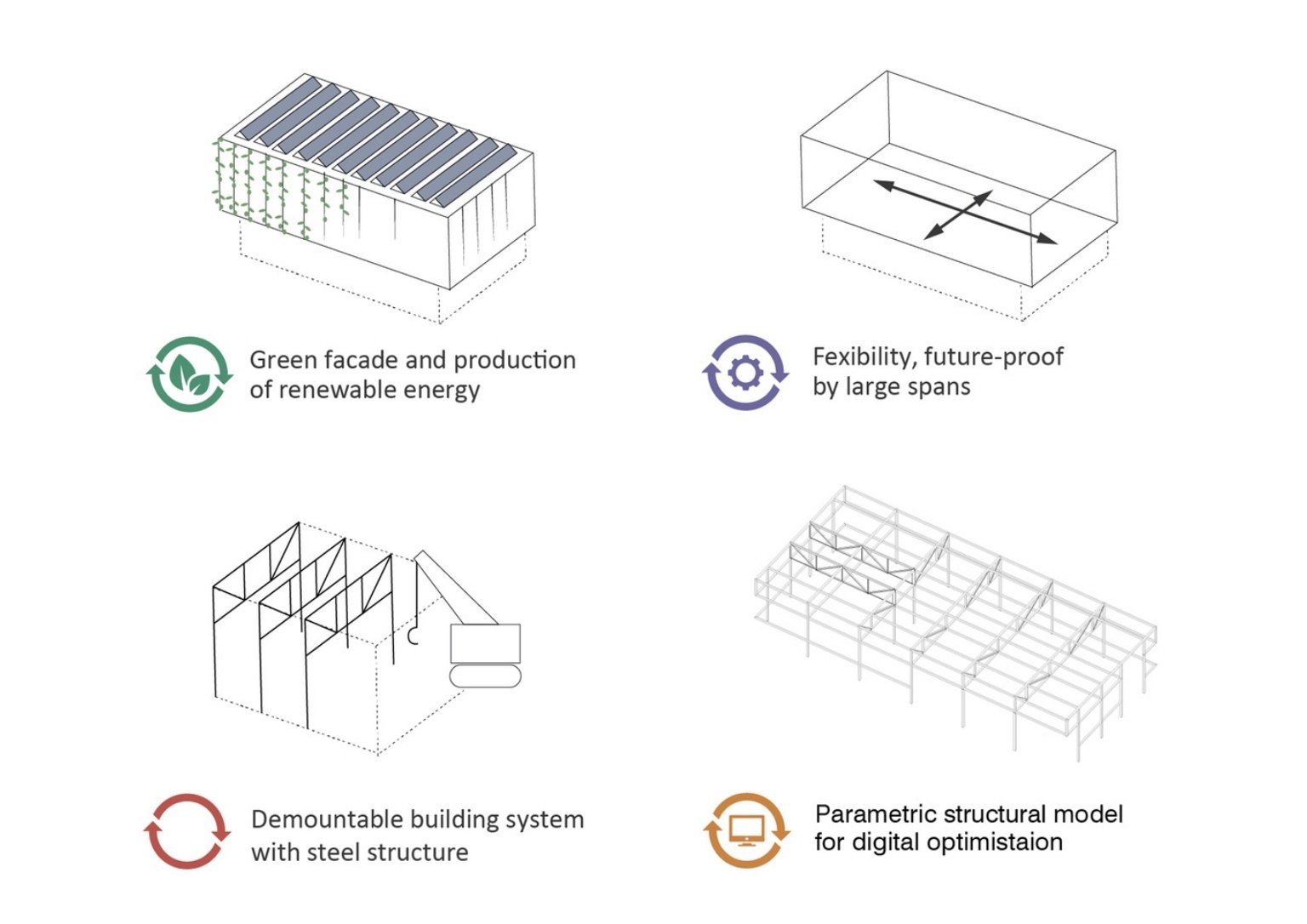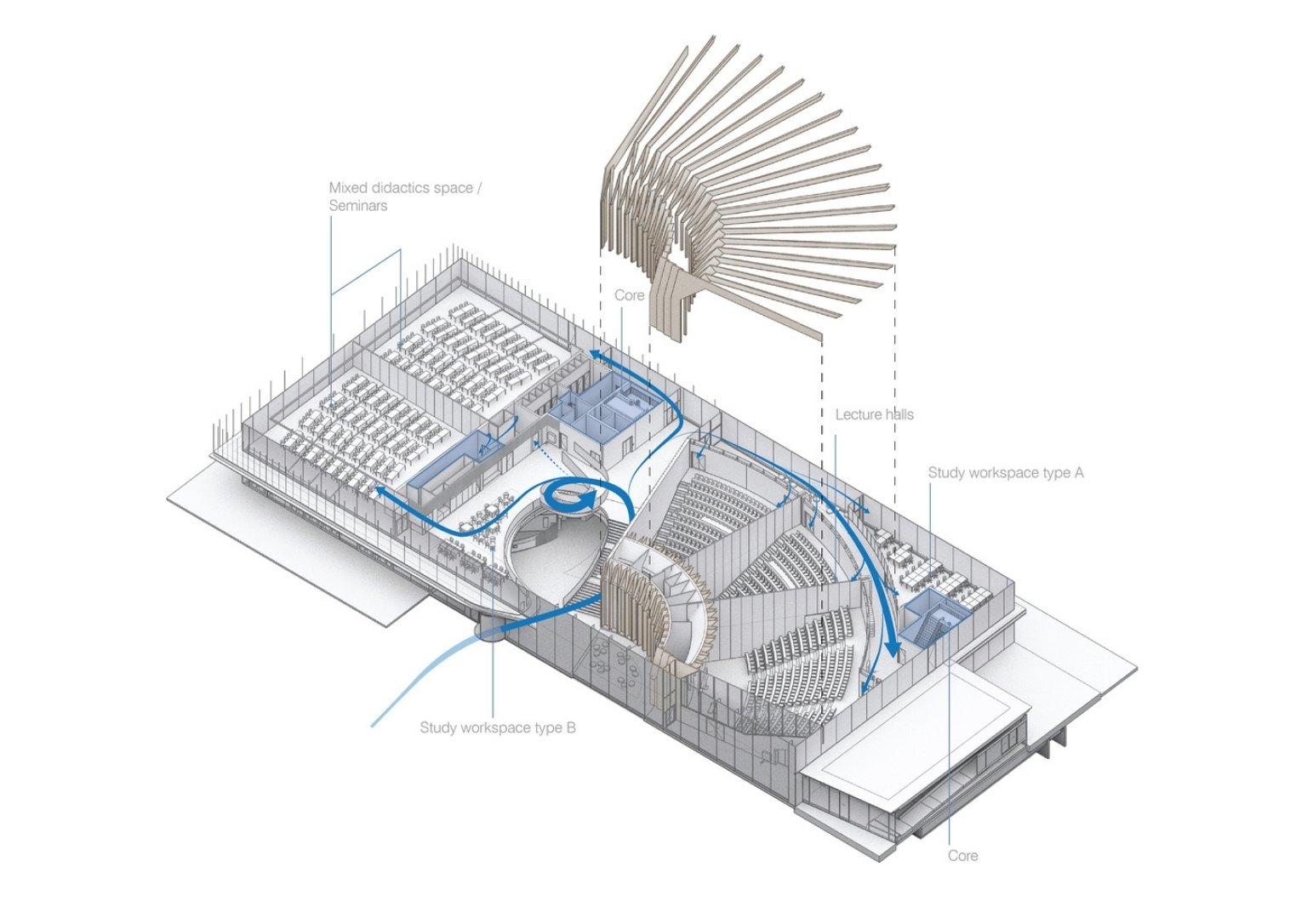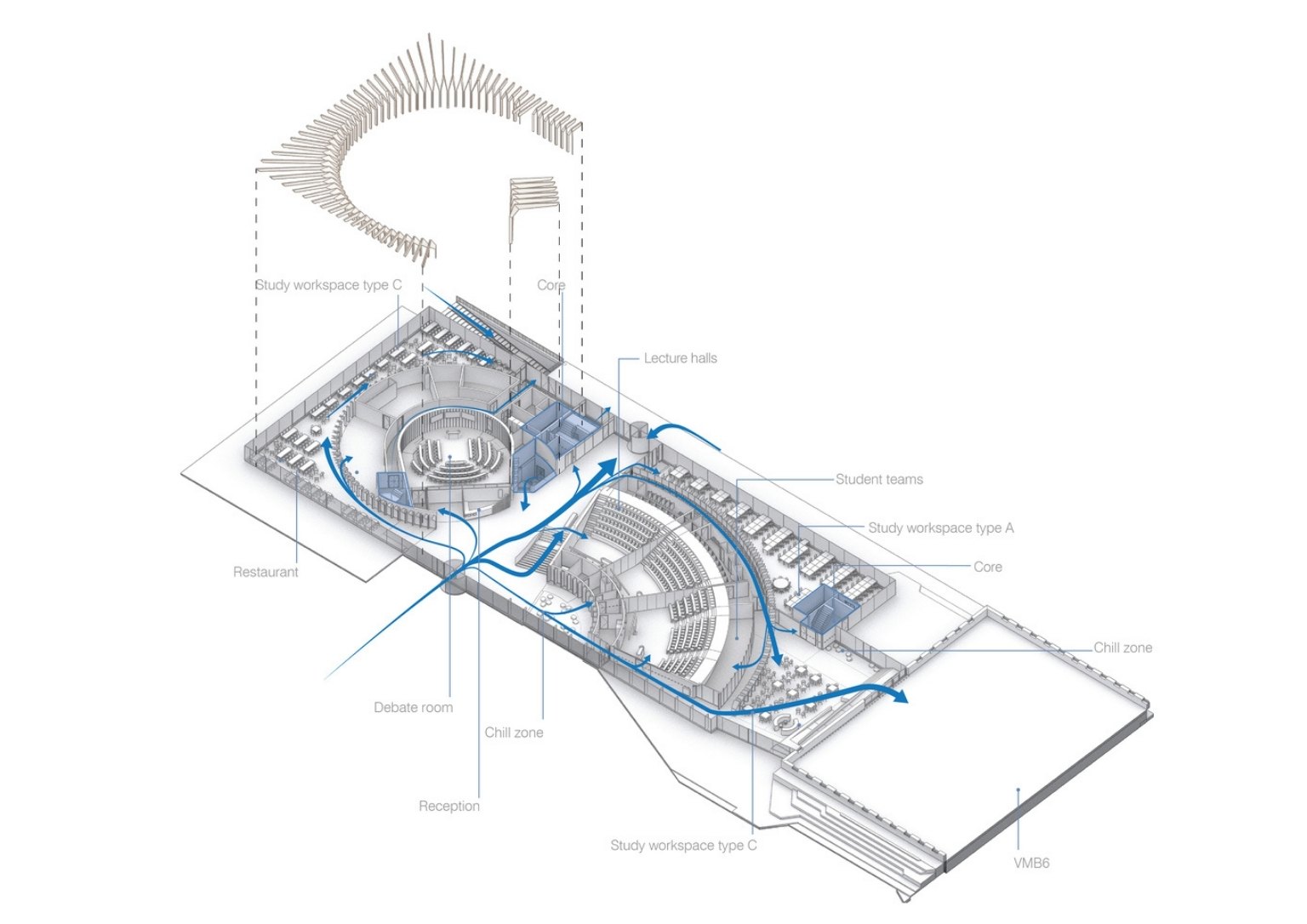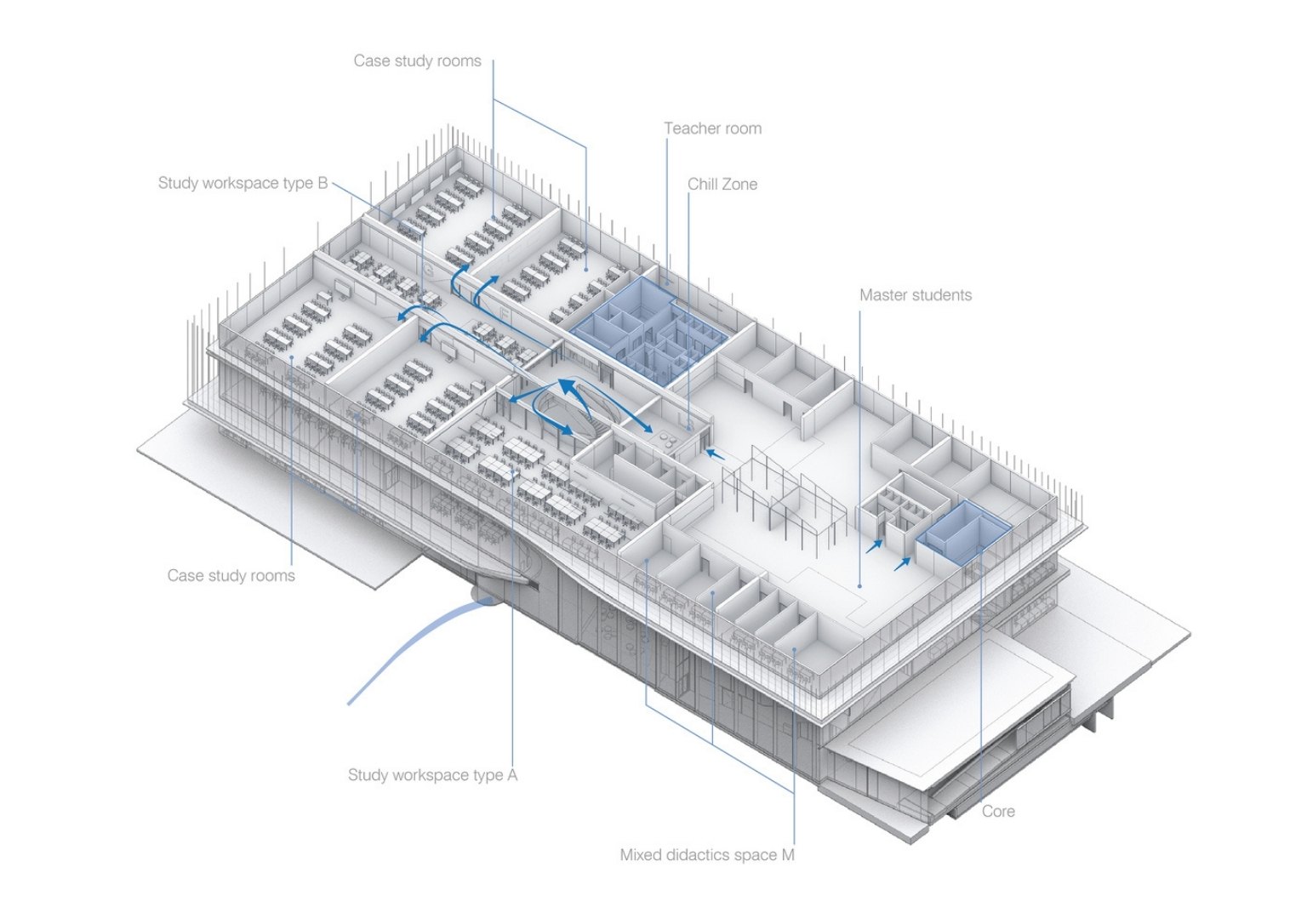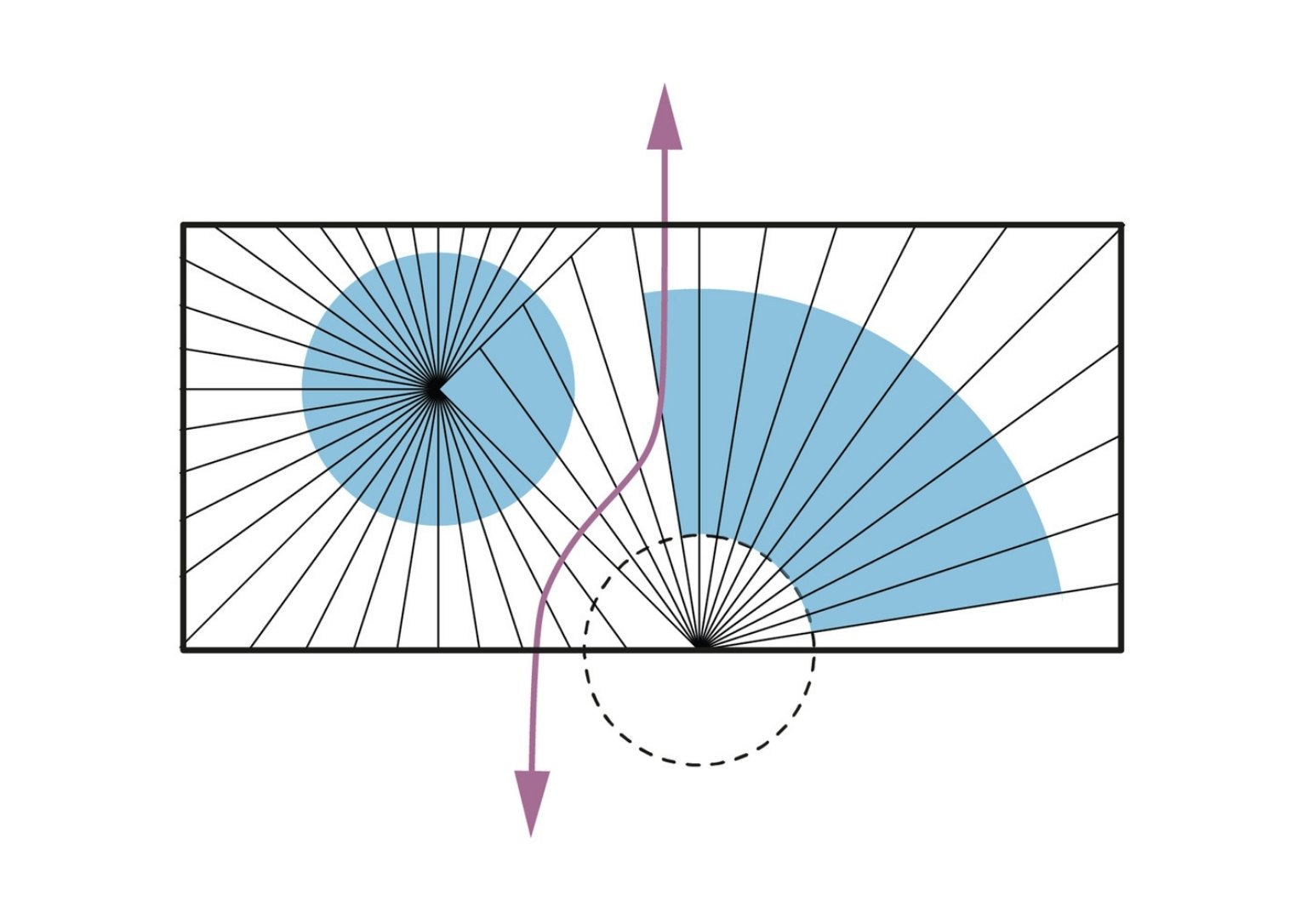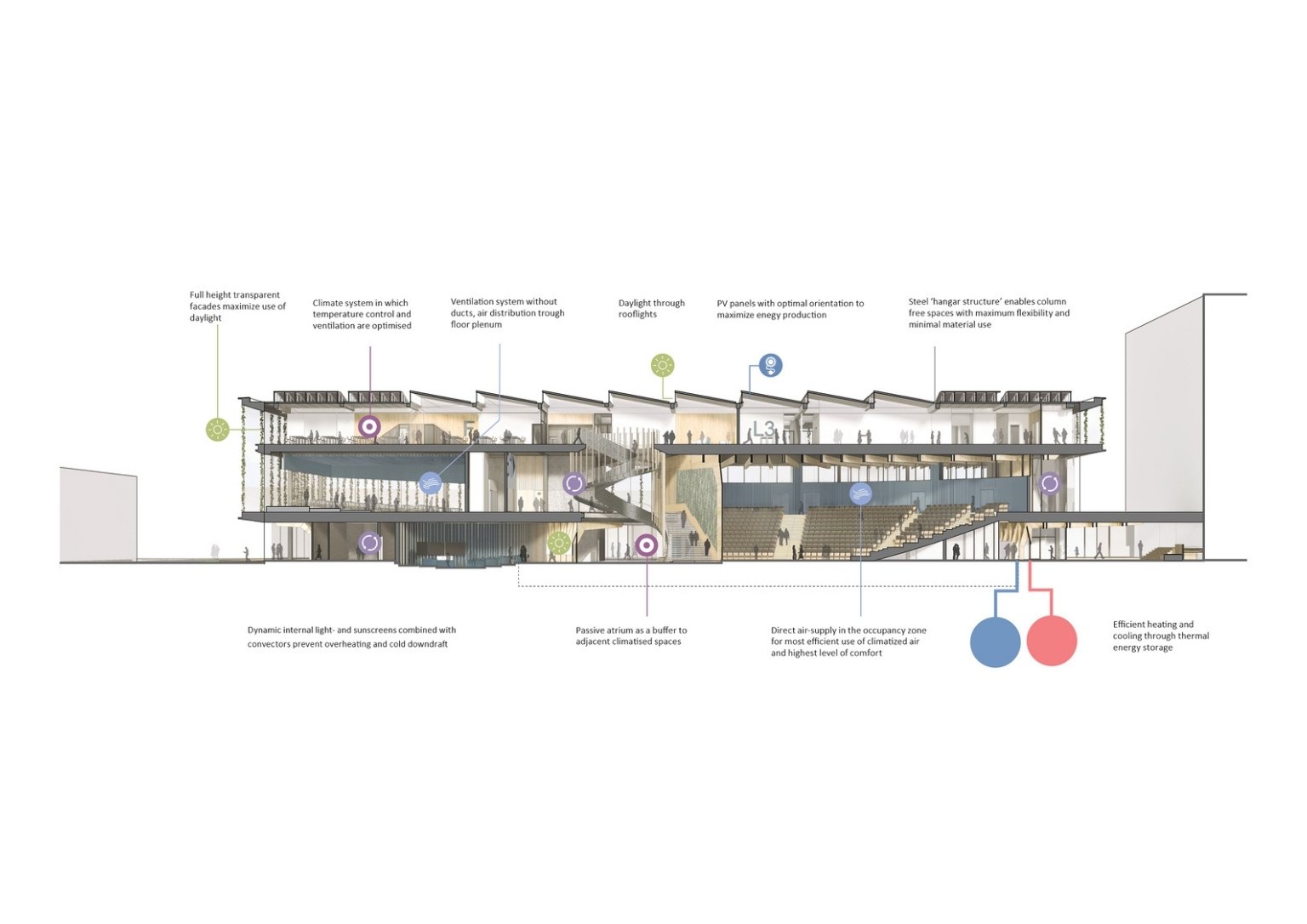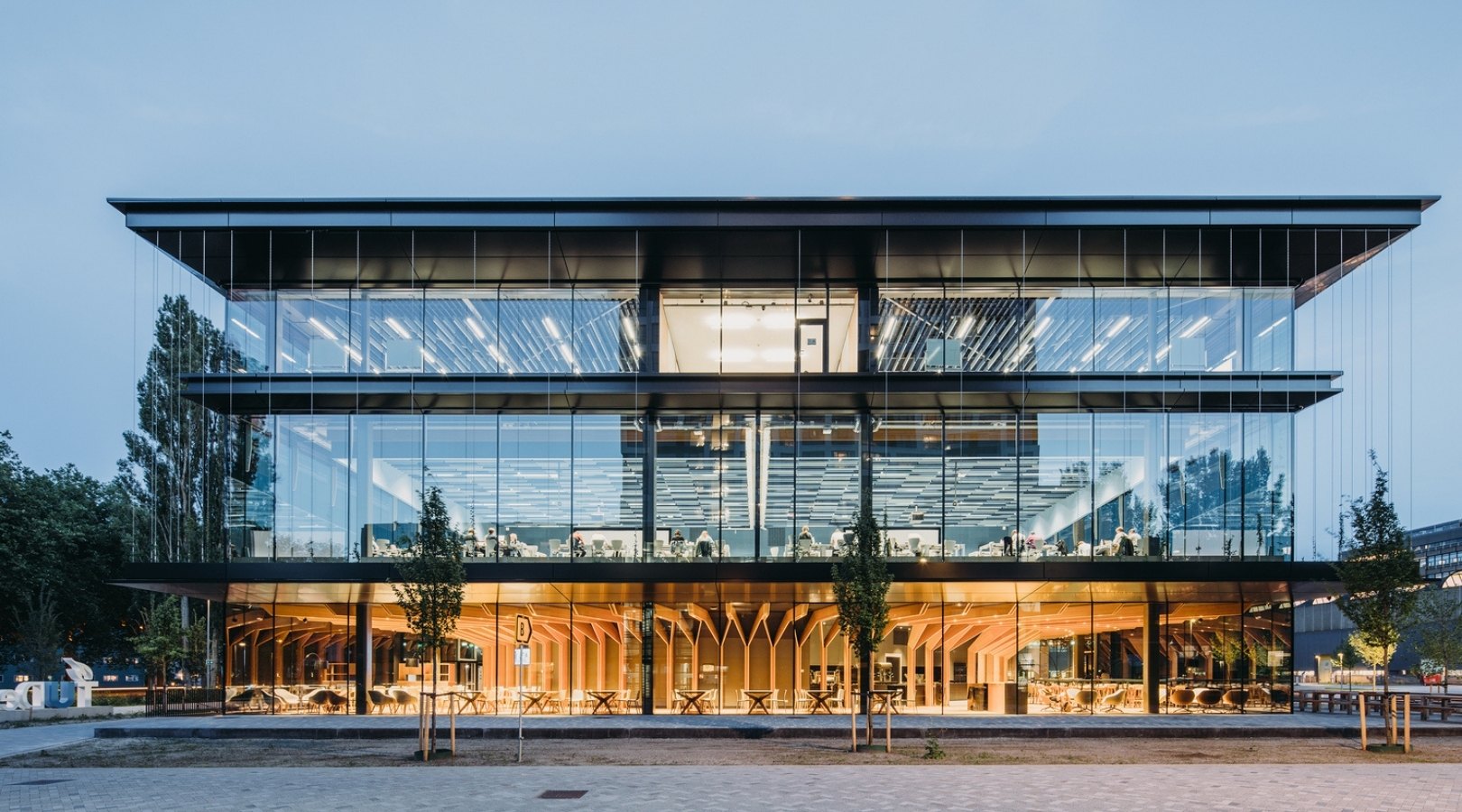
Echo Building Sets A Benchmark For Sustainable Campus Structures
Joining the growing list of environment-conscious facilities is the Echo building by UN Studio. The Delft University of Technology in Delft, Netherlands, is home to this energy-generating structure that emphasizes versatility, care for nature, and the users’ welfare. Echo is an interfaculty educational building and the most sustainable facility within the TU Delft campus. As the university moves towards operating a fully sustainable campus by 2030, creating an energy-efficient building is a major step forward while starting a norm for its engineering and technology students.
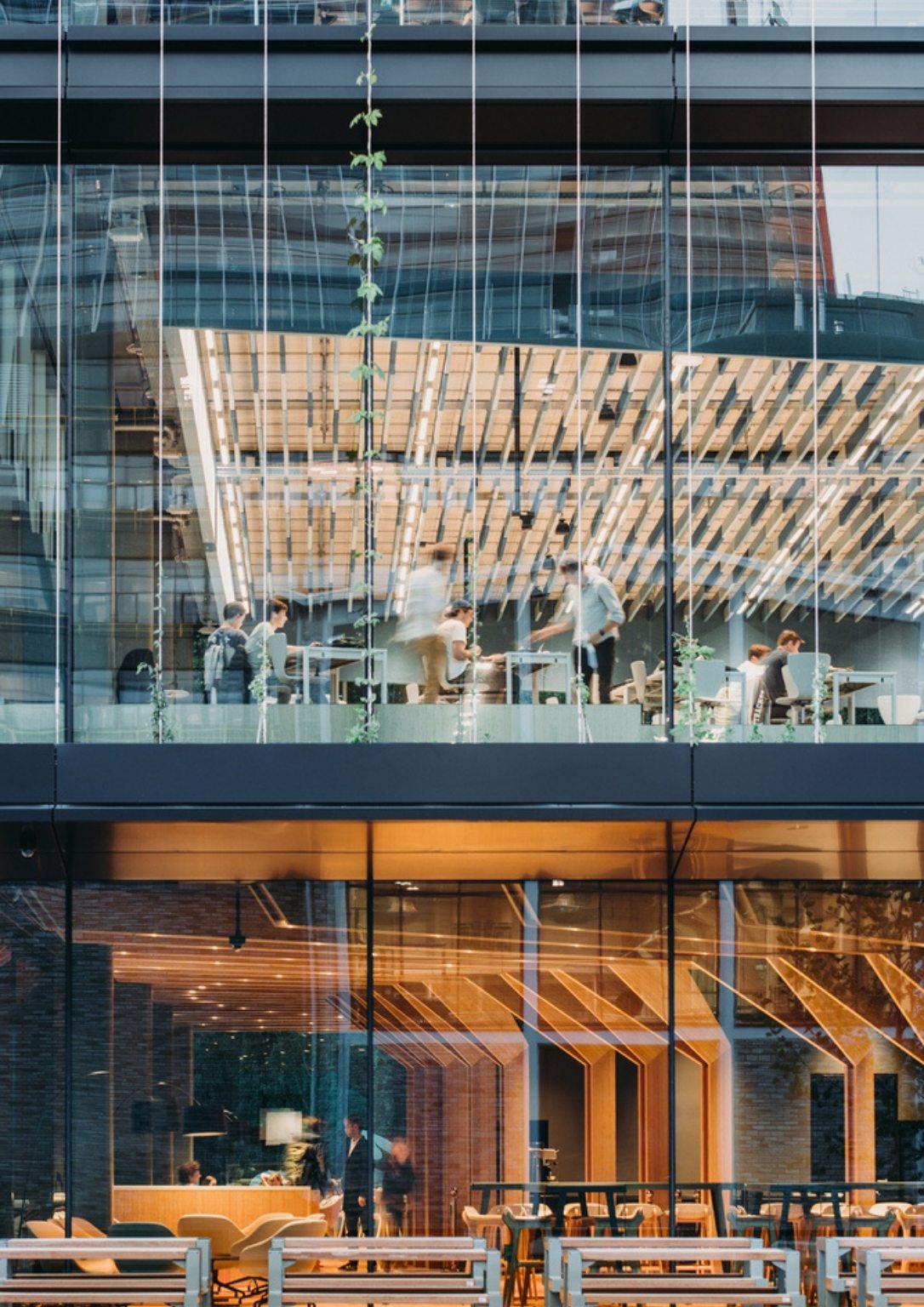
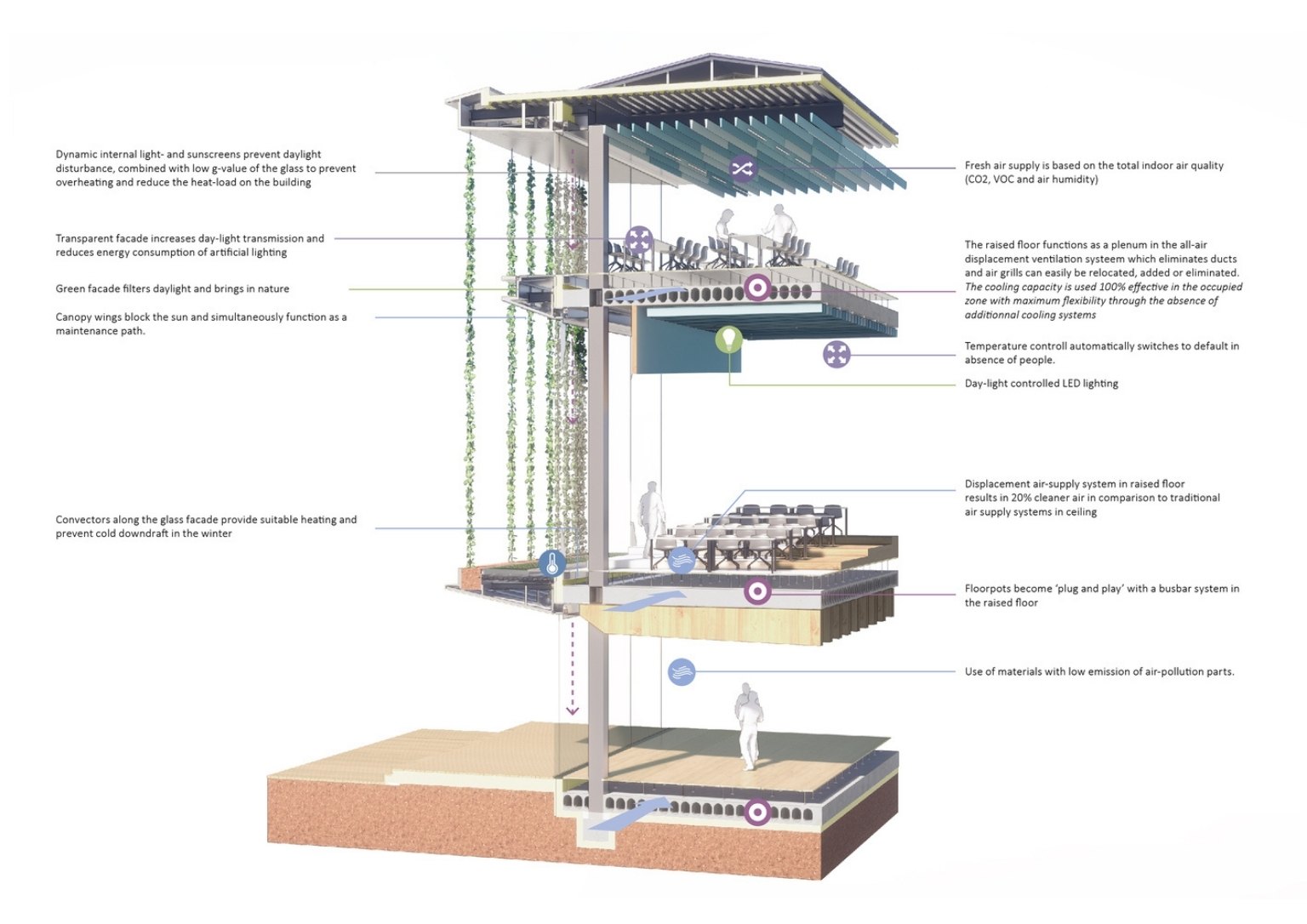
The Echo building is a reflection of the university’s ethics and its commitment to the future. It sets a precedent for students and faculty in terms of campus experiences. The architectural team and collaborators designed a sound structure with more than a thousand solar panels, smart installations, and a heat and cold storage system. These elements guarantee that the building can generate ample energy for its daily operations. Moreover, to decorate the spaces, the design team used repurposed pieces of furniture.
Access to sunlight filtered through the extensive low-E glazing minimizes the need to use artificial lighting. It also provides a view of the exterior grounds and nature, creating a connection and uplifting the interior environment. Aluminum canopies installed on the exterior help lower solar heat. The cables linking the canopies provide a platform for the plants to climb on, which will soon add another layer of heat filter. In addition, clean air is supplied through the plenum floor system above the hollow-core slabs.
The building’s design is open to future modification. The steel trusses used have standard sizes and are easily dismantled, allowing for subsequent reuse. Much like the hollow-core slabs, the vent on the plenum floor can easily be displaced as well.
Echo is a structure celebrating the many ways people can be connected. The interior welcomes users through bamboo ribs extending along the ceiling, shaping a vital part of the design. The central staircase, still with bamboo elements, connects the study and shared spaces into an arena of learning and collaboration.
Building a sustainable campus is not just about saving costs and reducing your environmental footprint. It’s also about creating an environment that promotes learning and wellness while providing inspiration for knowledge and creativity. The UN Studio sought excellence in creating an energy-efficient architectural edifice and delivered. It resulted in an encouraging atmosphere for the campus and a motivation for students to care for the environment.
Photos are from Eva Bloem and Hufton+Crow.
